Jeffrey Auerhahn v. Tarek Mehanna: Suborning Perjury and Official Secrets
Friday, Oct 7, 2011 Axis of Logic
| |
Editor's Note: We thank our friends at the Free Tarek Mehanna Support Committee in Boston for writing and submitting this report on the arrest and imprisonment of Tarek Mehanna. Tarek was first arrested by the FBI in the fall of 2008 and then again in October 2009. Read how Asst U.S. Attorney Jeffrey Auerhahn, who has a history of coercing witnesses and informants has used the same methods to obtain testimony against Tarek Mehanna. For the last 2 years Tarek has been imprisoned in the notorious Plymouth County Correctional Facility in 23-hour solitary confinement awaiting trial. In his trial this month, the government is threatening him with a life sentence. Read more details in a summary of his case and all about how you can help fight this injustice at the Free Tarek Mehanna Website.
- Les Blough, Editor
A federal prosecutor is trying an alleged member of the New England mafia for ordering an execution. One of the policemen working on the case calls him with an important piece of news to share: the star witness has just called to say that his grand jury testimony fingering the defendant was false. The defendant never ordered the murder.
The prosecutor calls an emergency meeting with the witness, the cop, and an FBI agent also working on the case. They meet in a hotel room in another state. The witness repeats his recantation: the defendant never ordered the murder. The prosecutor and the FBI agent are furious and tell the cop to take the witness into the hallway and “straighten him out.” The cop explains that if the witness changes his testimony he’ll be removed from the witness protection program—a death sentence--and potentially face trial for criminal charges connected with the murder. So the witness comes back into the room and changes his mind—he’ll testify that the defendant is guilty, after all.
A scene from a seedy, TV crime-drama?
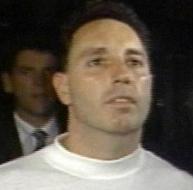 |
| Vincent Ferrara released in 2005 after serving 16 years in prison based on coerced testimony used by Assistant US Attorney Jeffrey Auerhahn. |
No, it’s from the court record of the case “Ferrara v. US,” and the prosecutor is one Assistant US Attorney Jeffrey Auerhahn. And it gets worse: not only did Auerhahn coerce the witness into lying, he made no record of the incident and said nothing about it to the defense attorney. When the cop put it all into a written report, he doctored the report and then kept the “sanitized” version in his own files. Questioned about all of this years later in court, he lied—it never happened, he couldn’t remember anything.
Then the documents turned up.
Here’s how Judge Selya, deciding for the First Circuit Court of Appeals, summed up Auerhahn’s actions:
 |
| Walter Jordan, coerced into testifying against Vincent Ferarra |
Judge Selya went on to write in the same decision:
“…the government's actions in this case … paint a grim picture of blatant misconduct. The record virtually compels the conclusion that this feckless course of conduct--the government's manipulative behavior, its failure to disclose the Jordan recantation and/or the Coleman memo, and its affirmative misrepresentations (not anchored to any rational and permissible litigation strategy)--constituted a deliberate and serious breach of its promise to provide exculpatory evidence. In the circumstances of this case, then, the government's nondisclosure was so outrageous that it constituted impermissible prosecutorial misconduct ..."
What happened to Auerhahn after the court found out that he had done these things? The head of the Massachusetts US Attorney’s Office transferred him from the Racketeering Unit into the Anti-Terrorism Unit. Considering that the Massachusetts US Attorney’s Office calls “terrorism” its “number one priority,” one can only call the transfer a promotion.
| |
| Assistant US Attorney Jeffrey Auerhahn transferred to Anti-Terrorism Unit after "prosecutorial misconduct" in the Racketeering Unit. |
From Racketeering to Terrorism
In his current position at the US Attorney’s Office, Auerhahn has prosecuted a series of cases related to "terrorism" and "national security." In 2010 he appeared in court seeking a reduced sentence on felony weapons charges for Bilaal McCloud in exchange for testimony against Tarek Mehanna. What’s the story?
| |
| Dr. Tarek Mehanna, political prisoner, |
Mehanna is being accused of “material support for terrorism” and other related charges. According to Mehanna, his real “crime” was his refusal to work as an informant for the FBI in the Muslim community. Agents had approached him repeatedly since 2006. When he consistently refused, they threatened to make his life a “living hell.”
McCloud, who attended mosques in the same community, was caught as a felon in illegal possession of firearms. He faced a lengthy prison sentence. In exchange for his agreement to implicate Mehanna in crimes, Auerhahn dropped the more serious charges against him and asked for probation rather than prison on his behalf.
There is a name for the practice of rewarding a witness for giving the testimony that the prosecution wants. It’s called “incentivizing witnesses.” A recent study conducted in Illinois entitled “The High Costs of Wrongful Convictions” found that out of 85 cases of wrongful conviction (innocent people sent to prison), 30 of them involved “incentivized witness testimony.”
Coercing witnesses and informants is standard operating procedure for prosecutors across the country. What’s unusual in Auerhahn’s case is that he was caught concealing information about it and lying in court.
Discretion to Use Witnesses Who Lie
As details about the case of Whitey Bulger began to come out in the late 1990s, the public got a glimpse into the FBI’s dirty work with informants. Two “top-echelon informants”—Bulger and Flemmi--were literally given a license to kill in return for providing information against rivals. The FBI not only let them carry out assassinations, it provided them with information about potential witnesses against them—it gave them the hit list. FBI agents helped their “informants” ship tons of illegal drugs into Boston, tipping them off against police and DEA investigations. And in return, Bulger and Flemmi provided the FBI with “information” against their competitors—that is to say, helped them build federal cases against people they themselves wanted to get rid of. In some cases they committed murder, fingered other people for it, and the FBI and federal prosecutors put those people away. Was it a question of a few “rogue agents” or a corrupt prosecutor here and there?
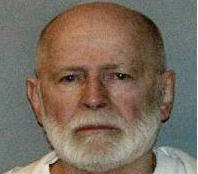
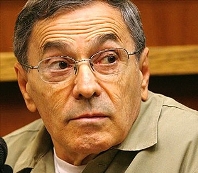
The FBI gave crime partners, Whitey Bulger and Stephen Flemmi a license to kill in return for providing information against rivals.
Attorney Michael Avery helped win a multi-million dollar law suit against the FBI for knowingly sending four of those innocent men to prison on murder charges. The court found that the FBI had "suborned perjury"--deliberately coached witnesses to lie--and framed the four men in order to protect its top-echelon informants. As the case came to trial, the United States Department of Justice (DOJ)—which oversees both the FBI and the US Attorney’s Office—defended its agents on the grounds that their actions fell within the boundaries of professional "discretion." Or as Avery summarized the position that the DOJ maintained in a series of briefs submitted from 2004-2007, "When FBI agents are working with a cooperating witness, they have discretion to work with a witness that they know isn't telling the whole truth."
Did you get that? According to the DOJ, the government has “discretion” to put people on the stand to lie under oath. And they can offer them all kinds of “incentives” to do it.
National Security Interests
There’s an important difference between prosecuting racketeering cases and prosecuting “terrorism” cases. When Auerhahn came up against Judge Wolf in 2003, the judge’s final decision rested on documents that he required the government prosecutor to produce. And the ultimate reason for granting Ferrara’s appeal and reversing his wrongful conviction was the failure of the prosecutor to turn over “exculpatory evidence." The court decided that even an alleged mafia captain accused of murder has certain elementary rights to due process. Part of that due process is the right of the defendant to see “exculpatory evidence” (evidence that might show innocence) in a process called “discovery”—the requirement that the prosecutor provide information to the defendant that is necessary for the preparation of an adequate defense.
In “terrorism” cases the courts have allowed the DOJ—the same DOJ that has historically asserted its “discretion” to use witnesses who lie—to refuse to hand over documents in discovery based on “national security interests.” This means that the entire seedy process of bribing, coercing and otherwise manipulating informants and witnesses to lie against defendants is now potentially immune from disclosure.
And that’s exactly what the US Attorney has done in the Tarek Mehanna case.
Dr. Terek Mehanna,
In August of 2011, a hearing was held in Dr. Mehanna's case concerning materials submitted by the FBI to the FISA court. This would potentially include informant material used to obtain warrants for electronic surveillance. The DOJ asserted its right to keep these files sealed based on "national security."
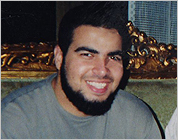
prisoner of conscience
In the course of the same hearing, the defense counsel requested information about important exculpatory evidence. In 2008, the NYPD had sent a covert agent from the Joint Terrorism Task Force to Boston. The agent attempted to recruit Dr. Mehanna to carry out a terrorist action and Dr. Mehanna refused. Information about the incident had not been provided to Mehanna's attorney by the government, but by a journalist who had learned about it while writing an investigative piece about the NYPD's anti-terrorism investigations. When confronted, the US Attorney's Office refused to provide any information about the incident. Instead, government prosecutors requested a private consultation with the judge behind closed doors--a proceeding which the judge accepted. The judge, who happens to be one of the three judges who heard the case for prosecutorial misconduct against Auerhahn in 2010, went on to deny the motion to release the exculpatory evidence.
Jeffrey Auerhahn is infamous across the country as a "corrupt prosecutor," known as one of the 10 worst in the country. In legal circles, his name has become synonymous with such practices as "suborning perjury." Under the current regime of anti-terrorism prosecutions, Auerhahn is free to exercise his well-honed skills handling informants and cooperating witnesses under the cloak of "national security." It must be said that getting into the anti-terrorism business was a great career move for Jeffrey Auerhahn.
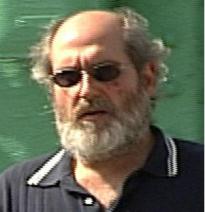
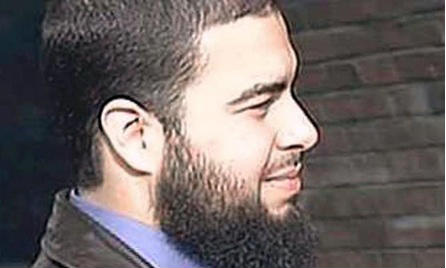


No comments:
Post a Comment